Planning an overseas trip soon and curious about finding and using toilets in Europe?
If you’ve been researching for a trip, odds are that you’ve heard plenty of rumors about European toilets, especially that you have to pay to use them!
If you’re hoping to separate rumor from fact when planning your first trip to Europe, this quick guide to public toilets in Europe can help.
I’m a US citizen who has traveled Europe extensively, visiting most European countries and spending a year living in Lisbon, Portugal along the way–and when it comes to public restrooms in Europe, my husband Jeremy and I have seen it all.
Like all of our general Europe travel guides, we intentionally speak at a high level here–these tips will help you throughout the continent, but of course, there are specific trends and quirks that vary from country to country (or even city to city).
And, while this blog post is mostly targeted at Americans like myself, many non-Europeans may learn about a cultural difference or two here.
Here’s what to know about finding and using public toilets in Europe, complete with many of the least aesthetic photos ever posted on our travel blog!
Table of Contents
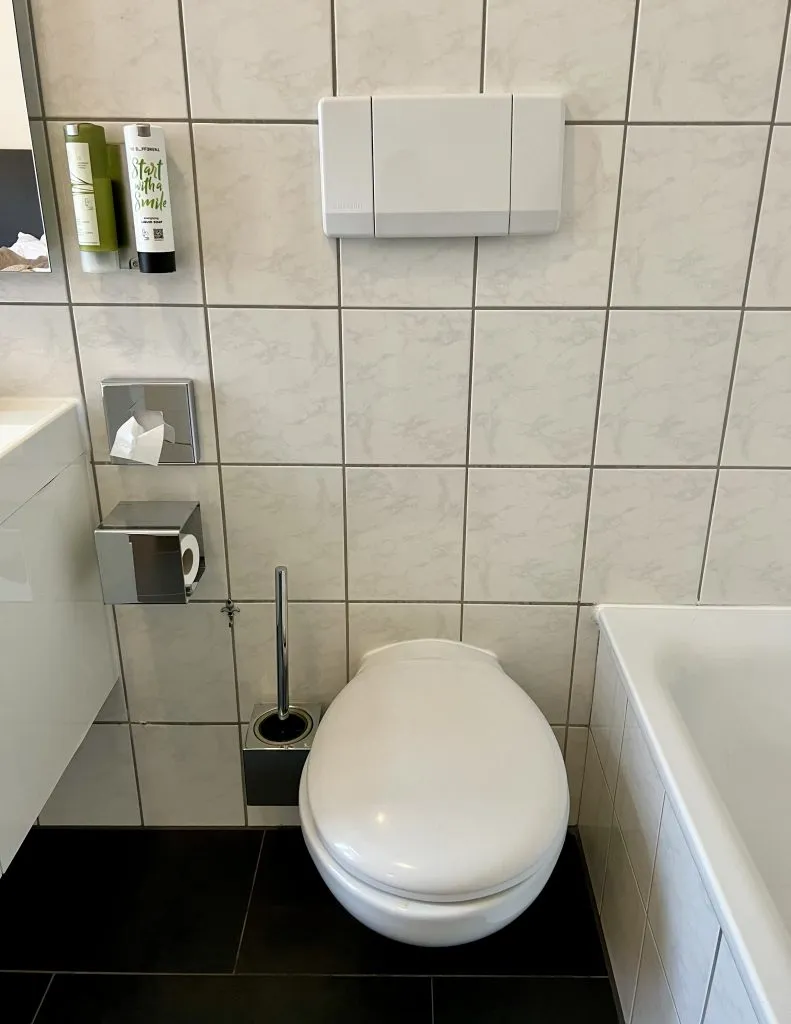
Where to Find Toilets in Europe While Sightseeing
First things first: when you’re out and about exploring, the last thing you want to deal with is needing a restroom when you can’t find one!
Luckily, finding toilets to use in Europe is not difficult.
Here’s where to look.
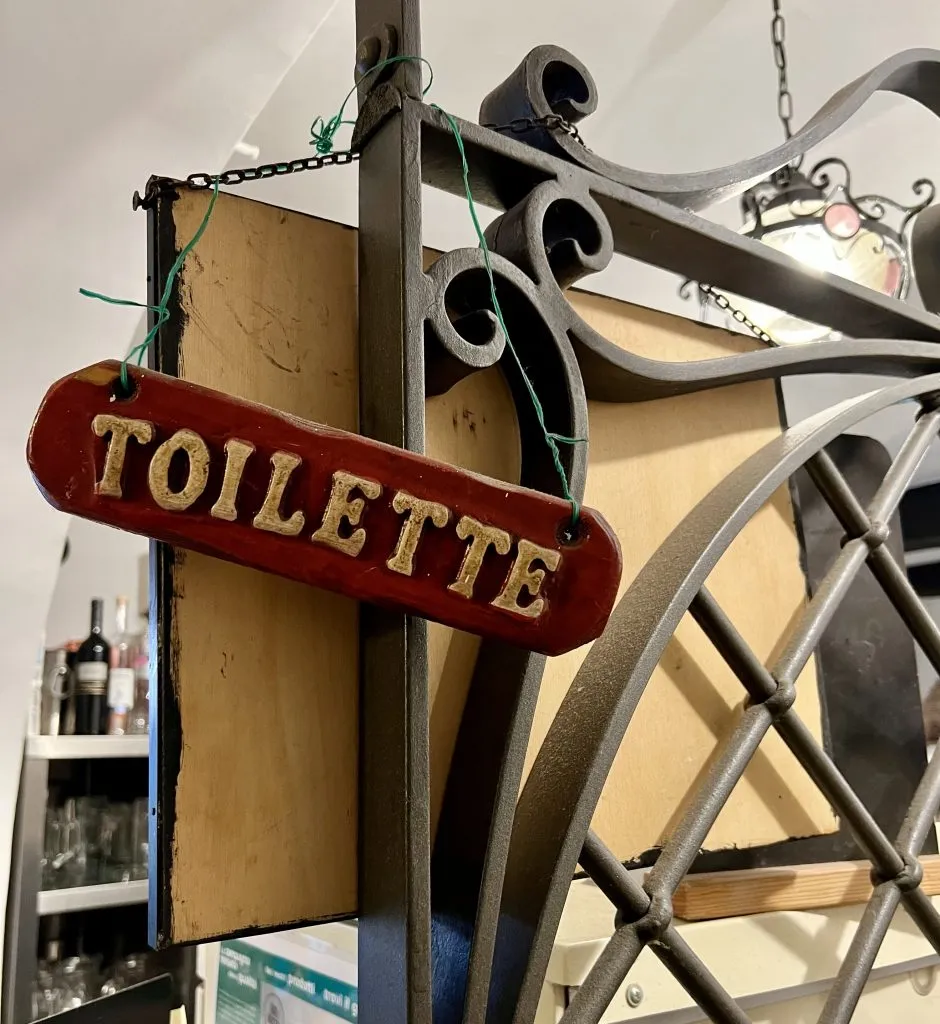
Cafes + Restaurants (Included)
Most cafes and restaurants will have a toilet for customers to use, and this is virtually always included with a purchase.
Some will also allow non-customers to use the toilet for a small fee (usually .50 Euro or 1 Euro), but this is far from a guarantee.
These European toilets tend to be functional, reasonably clean, and very small.
Unlike the US style of restaurant toilets where the building often has a bank of toilets built for customers, in European restaurants, one toilet located in a small closet, often half-hidden behind storage, is the norm.
This isn’t surprising when you consider that in Europe, many of the buildings that restaurants are housed in have been around much longer than our modern expectations of indoor plumbing have been!
If you don’t see a sign for a toilet, you can always ask an employee and they’ll point you in the right direction (often, you don’t even have to ask–just stand up looking confused, and they’ll know what you need).
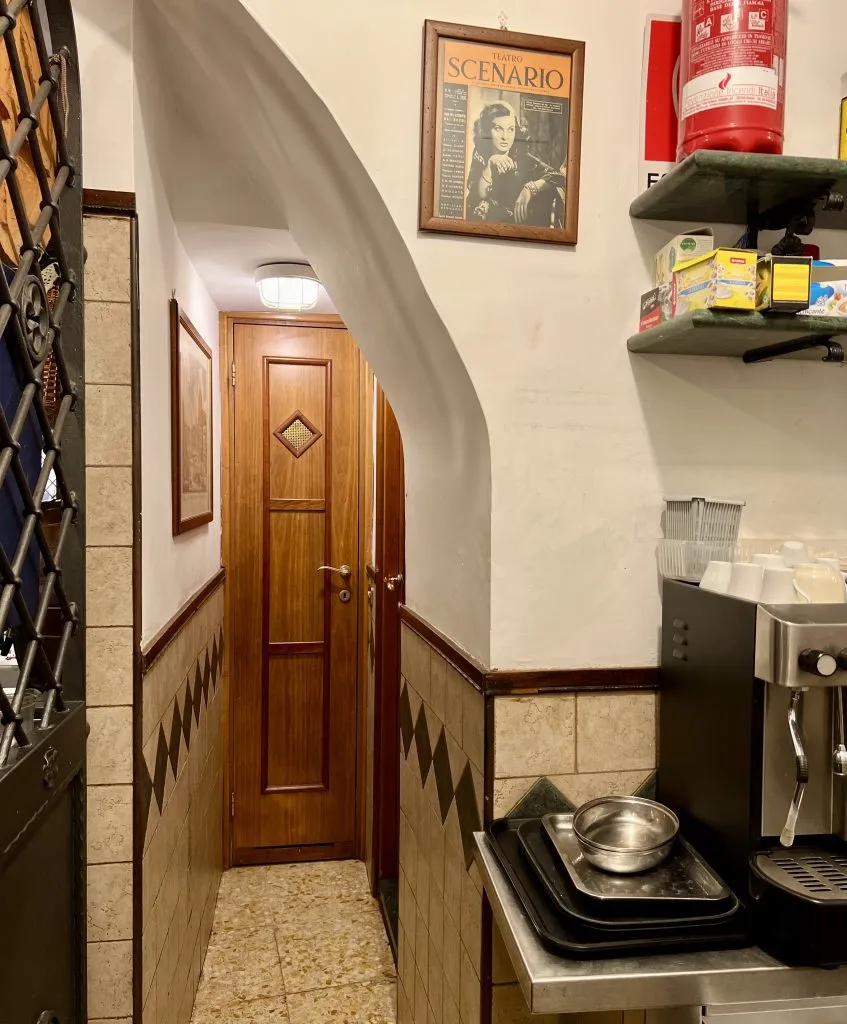
Museums + Other Attractions (Usually Included)
Most paid museums and attractions will have toilets available for customers to use.
These are typically larger and more spacious than what you can find in restaurants and cafes, though they can vary tremendously.
Typically, these toilets are included with your ticket, though you may find an occasional attraction that charges for their use.
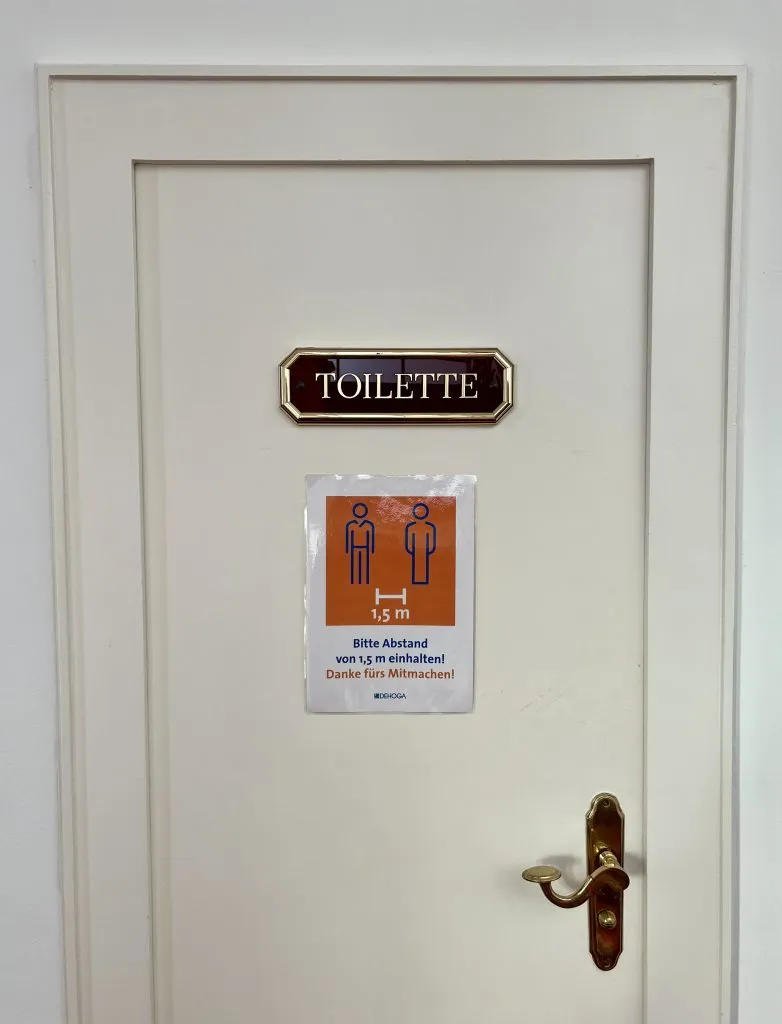
Transportation Hubs (Usually Paid)
Transporation hubs, such as train stations, bus stations, and airports, tend to have large, spacious toilets that you will need to pay to use (usually .50 or 1 Euro).
You’ll sometimes see this style of European toilet available in large public spaces like shopping malls as well.
These public toilets are typically manned by a turnstile system, and occasionally by an attendant.
Small coins are traditionally a must for paying to use these toilets in Europe, though tap-to-pay is becoming a more common option every year.
These public toilets are the most visible example of having to pay for toilets in Europe, and probably where the rumor that you always have to pay to use one comes from!
The good news is that, thanks in part to the fee, these toilets are (usually) clean, spacious, and very modern.
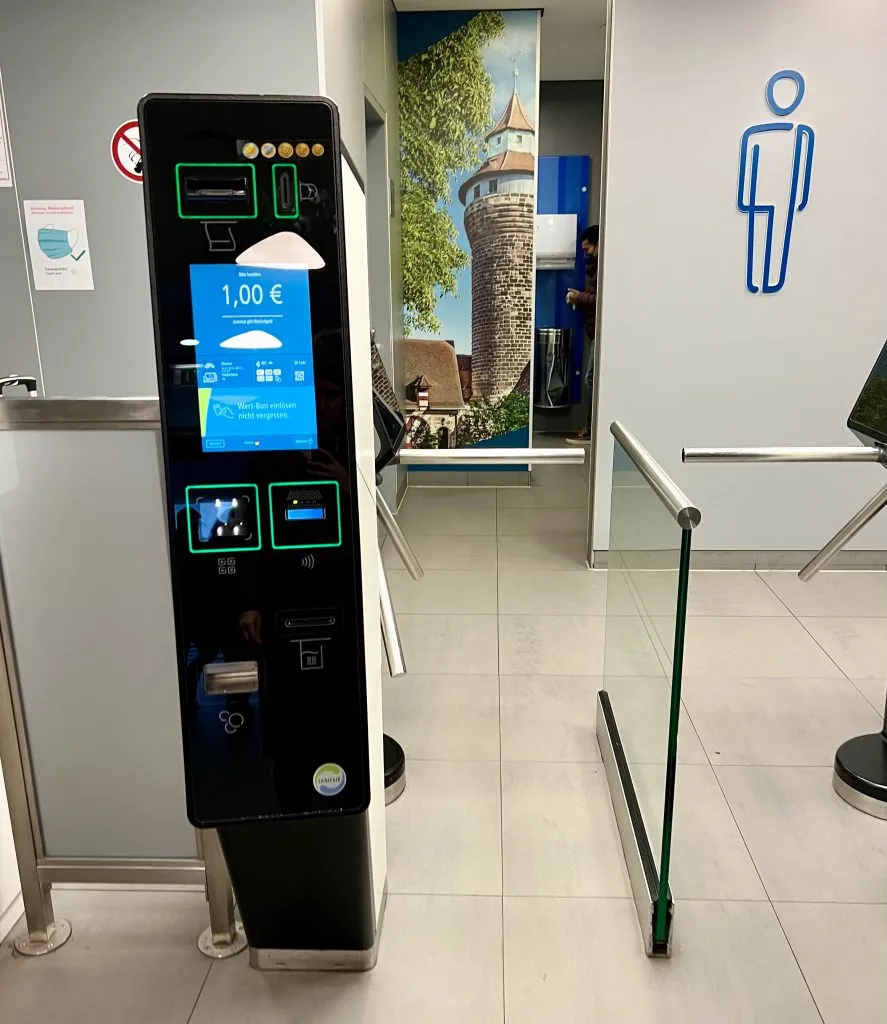
Public Toilets on the Street (Sometimes Free)
In some countries, like France and Germany, you’ll occasionally come across standalone, unmanned public toilets on the street.
These are sometimes coin-operated and paid, and other times, they’re free to use.
They can also be a bit of a gamble!
These standalone public toilets can be useful, or they can be very dirty and not at all worth saving a couple of Euro as compared to grabbing a coffee at the cafe down the street and using their toilet.
In certain cities, you’ll also find semi-private urinals on the street.
Amsterdam is particularly well-known for this, but we snapped this photo of one in Lisbon:
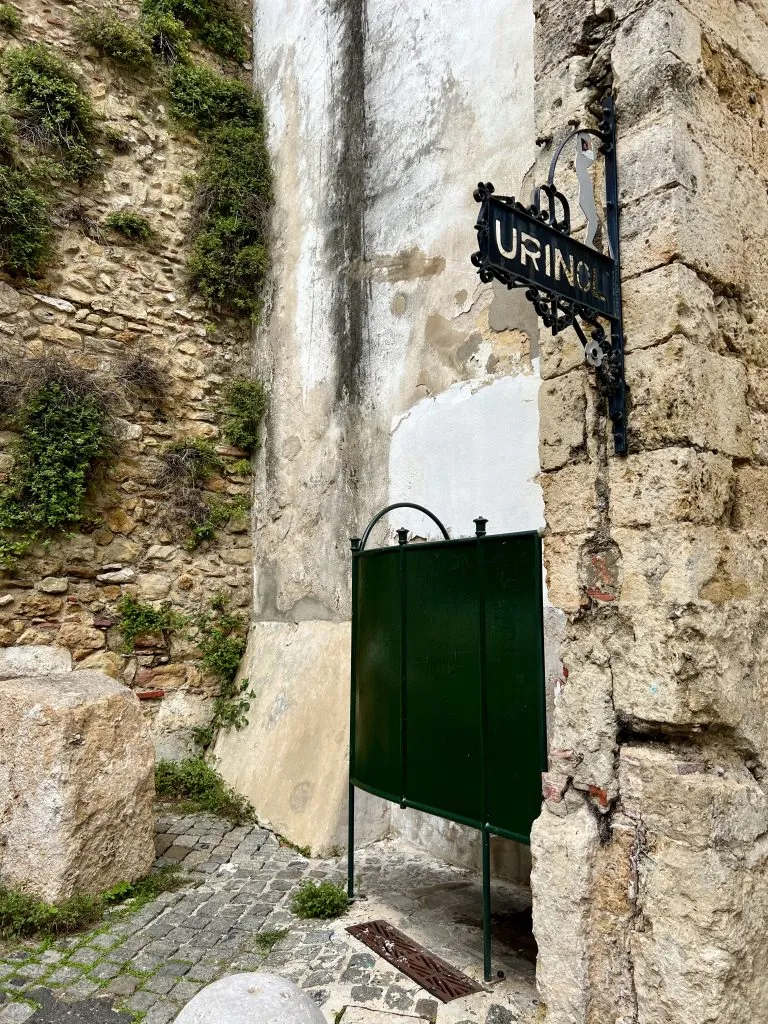
Quick Tips for Using European Toilets
It’s a toilet, not a bathroom.
The first rule for finding public toilets in Europe?
It’s definitely a toilet, and not a bathroom or a restroom.
In Europe, a “bathroom” is where you shower, so asking for one in a restaurant or museum is unusual.
“Restroom” simply isn’t a common term, and will make it harder to get your point across.
“Toilet”, on the other hand, is clear, concise, and one of those words that is understood across many languages (in French or Italian, it’s toilette, for example).
Of course, learning the specific phrase in the local language is always appreciated, but this is one word that transcends culture when traveling in Europe.
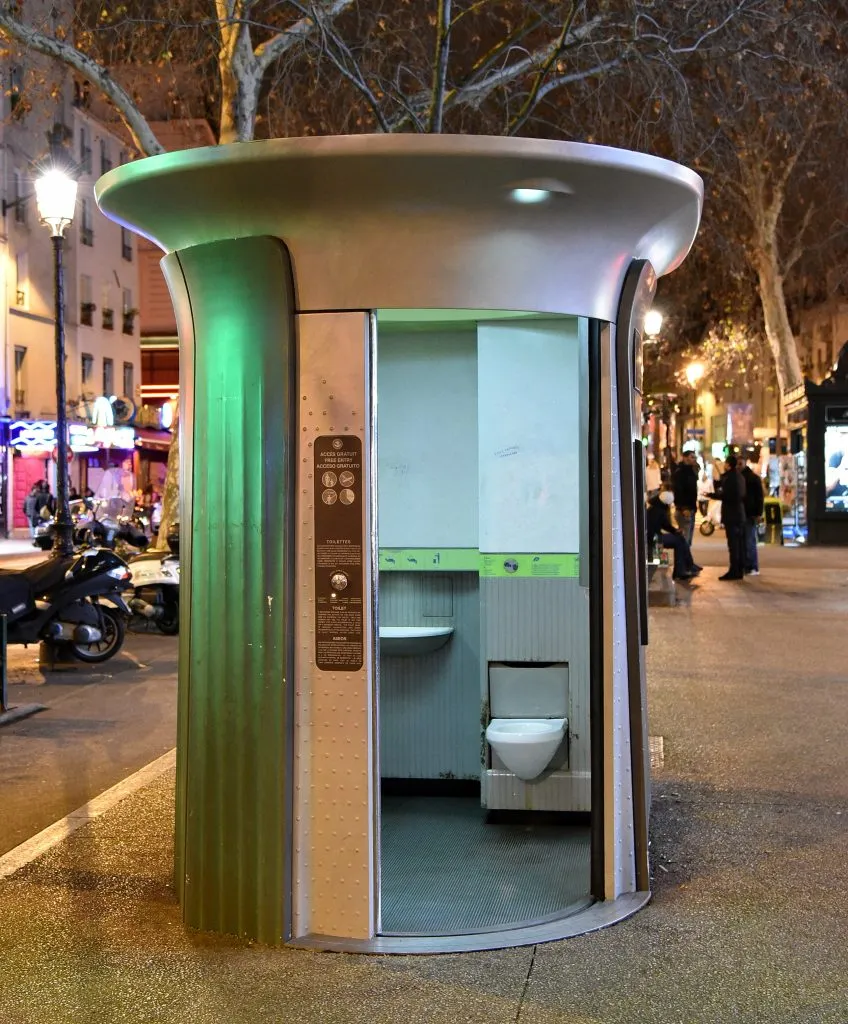
Keep an eye out for the phrase “WC”.
Like “toilet”, “WC” is a specific descriptor that transcends countries and is an extremely international term for a toilet (or what in the USA we would call a public restroom).
WC technically stands for “water closet”, but you’ll virtually never see it written that way.
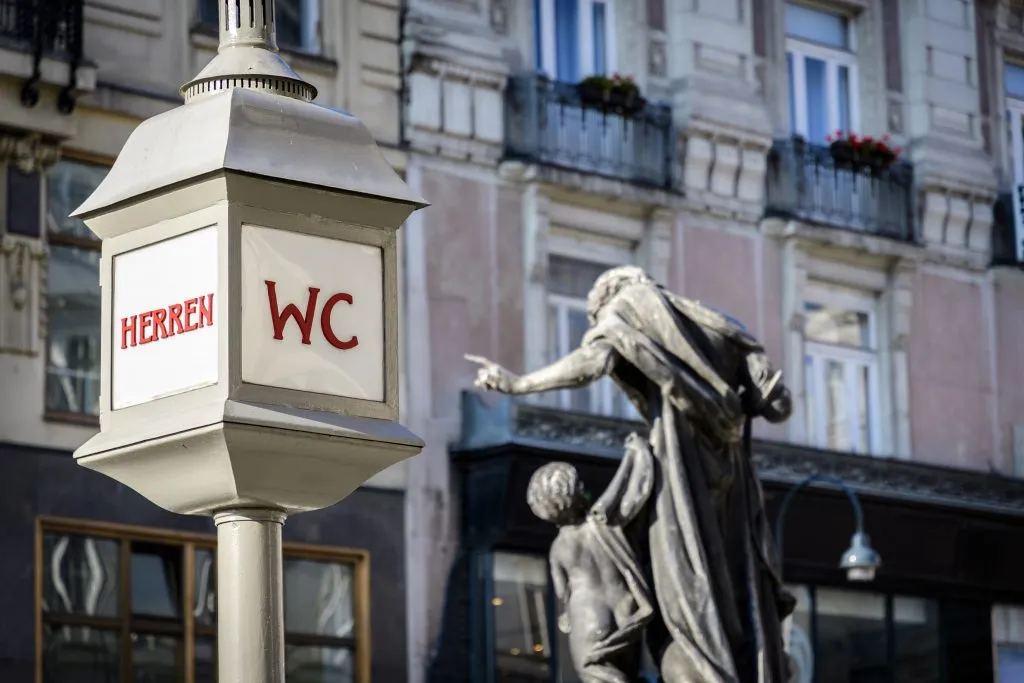
There will almost certainly be a bidet.
When checking into a hotel in Europe, you’ll likely notice an unusual addition to the bathroom in the form of a bidet.
A bidet is essentially a tool that Europeans (and many other non-US residents around the world) use to clean themselves with water after going to the bathroom.
It can take the form of a porcelain bowl (Americans sometimes refer to this as a “second toilet”, though it’s not), or in simpler bathrooms, simply a hose situated on a hook next to the toilet.
Whether you want to experiment with using one or not is up to you, but it’s definitely a cultural experience!
I’ve occasionally come across people asking if Europeans use toilet paper at all, which I find somewhat bemusing, but yes, they use both.
A bidet will get you clean, and in the view of many people in Europe, toilet paper is for patting dry afterward–as a result, Europeans tend to go through less toilet paper than Americans on average.
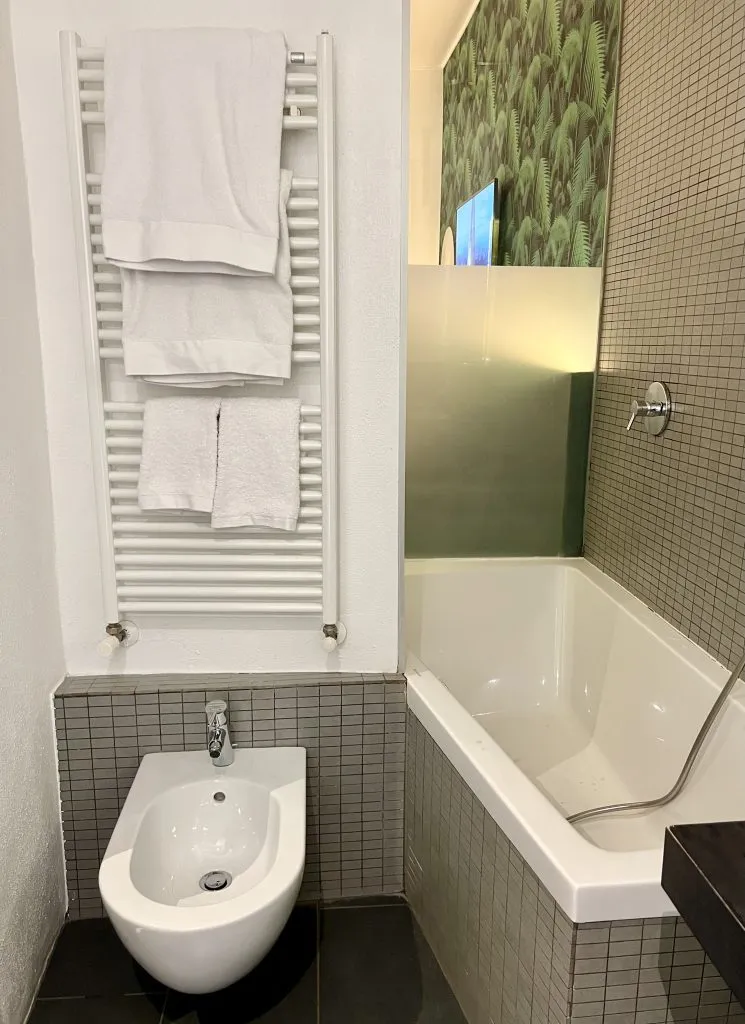
It’s not a bad idea to keep toilet paper with you.
While European toilets in places like restaurants will almost certainly be stocked with toilet paper, there’s no guarantee that public restrooms on the street will be, especially if you’re in a rural area.
Personally, this is a case of “better safe than sorry” for us, and we tend to carry a small pack of tissues and plenty of hand sanitizer in our day bag.
We haven’t needed to take advantage of having the tissue with us often… but when we’ve needed it, it has been a lifesaver.
If you can’t figure out how to turn on the sink water or flush the toilet, look down.
Sometimes, the flush for the toilet or tap for the sink water is operated with your foot via a pedal system.
This isn’t particularly common, but it’s far from unheard of, either.
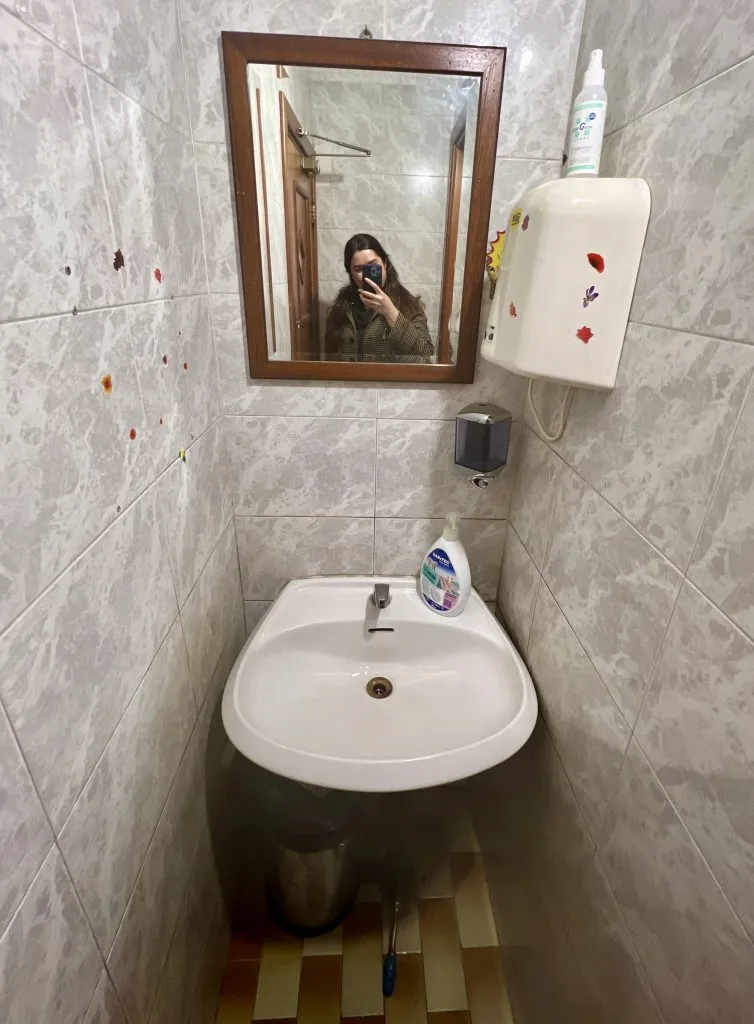
Yes, you have to pay to use the toilet in Europe… sometimes.
If there’s one thing that US citizens planning their first trip to Europe have heard about European toilets, it’s probably the rumor that you have to pay to use them.
So, is this true? Yes. No. And kind of.
Generally speaking, large transportation centers like train stations, bus stations, and sometimes shopping malls or airports, have toilets available that you have to pay to use.
The going rate is usually .50 Euro or 1 Euro, which can add up!
The trade-off is that these toilets are generally, though not always, reasonably clean and well-stocked.
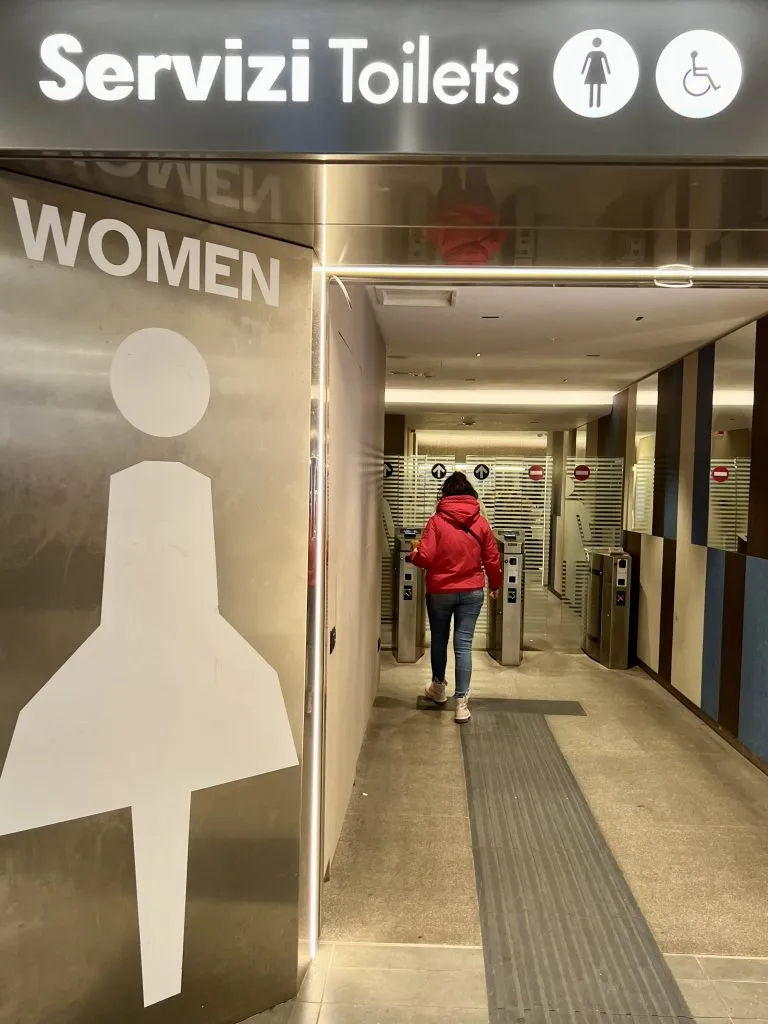
Meanwhile, if you’re a customer of an establishment, like a hotel, cafe, or restaurant, you’ll almost certainly be able to use their toilet without an additional charge.
Museums typically offer included toilets as well, though you may occasionally come across one that charges a fee.
Essentially, after years of traveling Europe extensively, we’ve come to a rhythm where we use the restroom as the opportunity presents itself throughout our sightseeing–after lunch, for example, or before leaving a museum.
We typically only pay to use toilets in Europe on days when we’re traveling from place to place and are in and out of train stations all day.
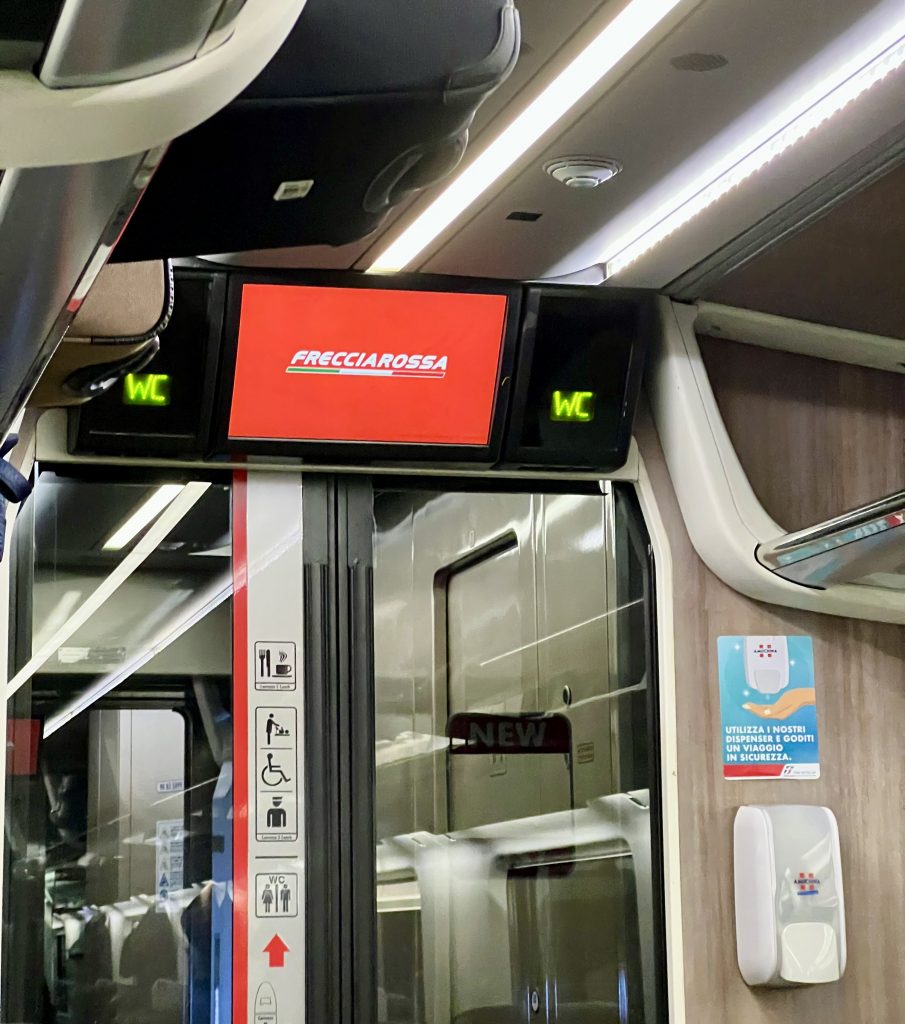
In a larger place, you might see a restroom attendant.
In a museum, train station, or large restaurant with a bank of toilets, you might see a restroom attendant keeping watch over the toilets.
This person will often collect the fee, if there is one, and will accept small tips for their service of keeping the area clean as well.
Tipping is optional, but .25 or .50 Euro is always appreciated.
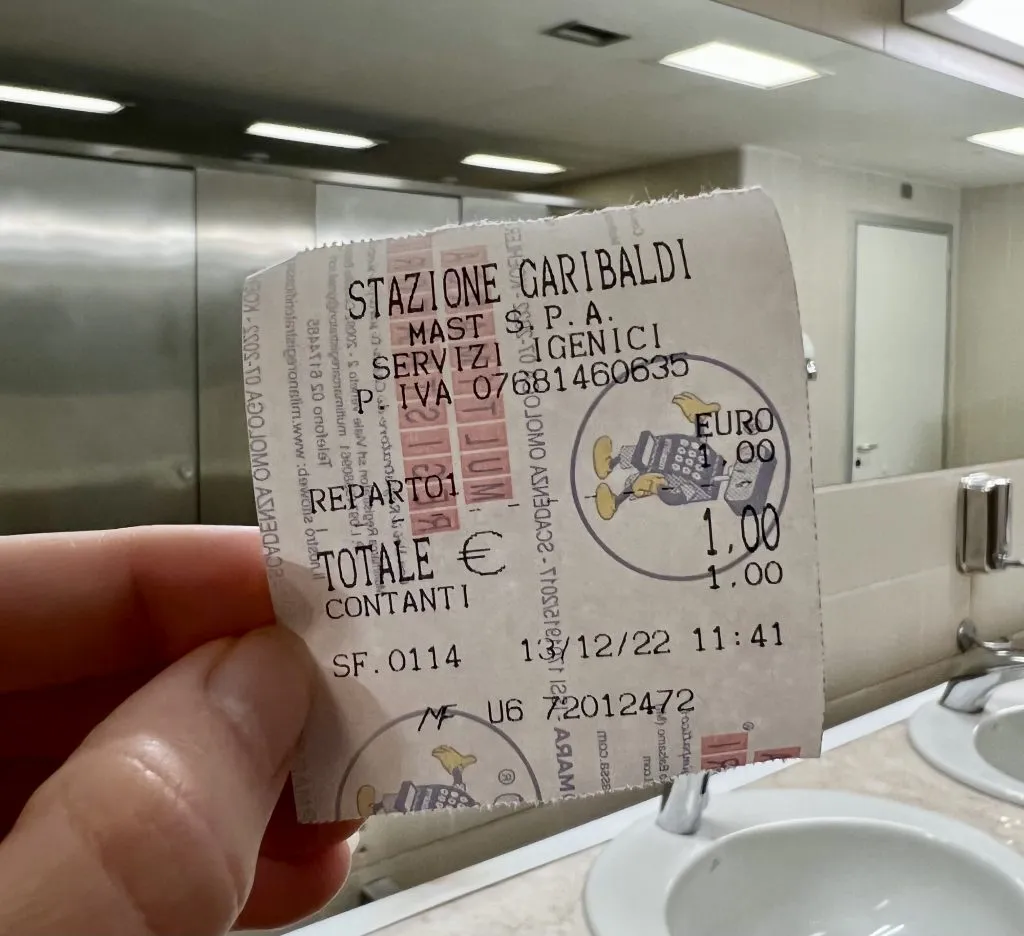
The pipes are shaped differently in European toilets vs US toilets–and it matters.
For Americans like us, you likely grew up seeing plungers resting next to toilets, waiting for the inevitable clog that would make them invaluable.
In Europe, you won’t see these at all–instead, you’ll see a toilet brush.
European toilets (including the pipes) are shaped a bit differently than US ones, and as a result, clogging due to typical use is simply unheard of.
However, due to the difference in shape, leaving less-than-pleasant residue behind on the bowl is more common with European toilets than American ones, so the toilet brush is made available to tidy up after yourself.
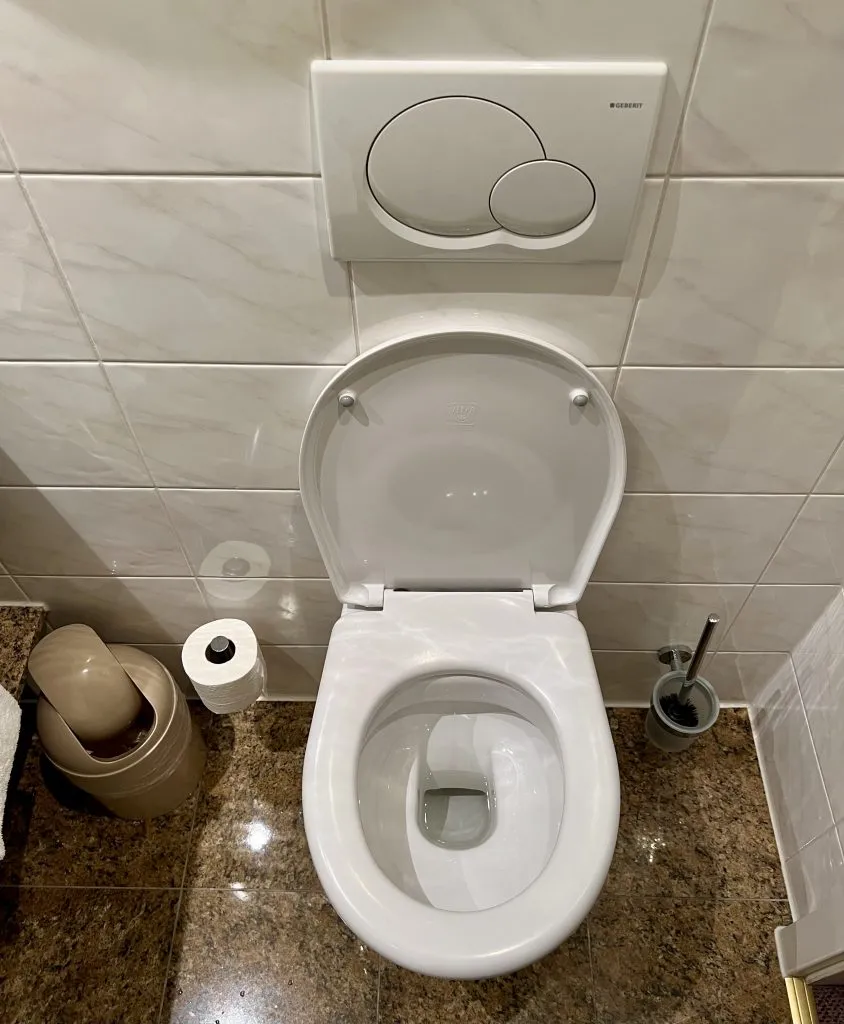
FAQ For Using Toilets in Europe
Do you really have to pay to use toilets in Europe?
Sometimes yes, but if you’re determined to avoid the fee, you can!
We went over this in more depth above, but very generally speaking, you can usually use the toilet for “free” in Europe in places you are a customer.
Large public spaces, like train stations, are where you’ll see pay-to-use toilets.
Why are there two toilets in Europe?
One of the FAQs about European toilets that I came across researching this post is the mystery of “two toilets”.
The “second toilet” found in Europe is actually a bowl-style bidet, which is often, though not always, situated right next to the toilet itself.
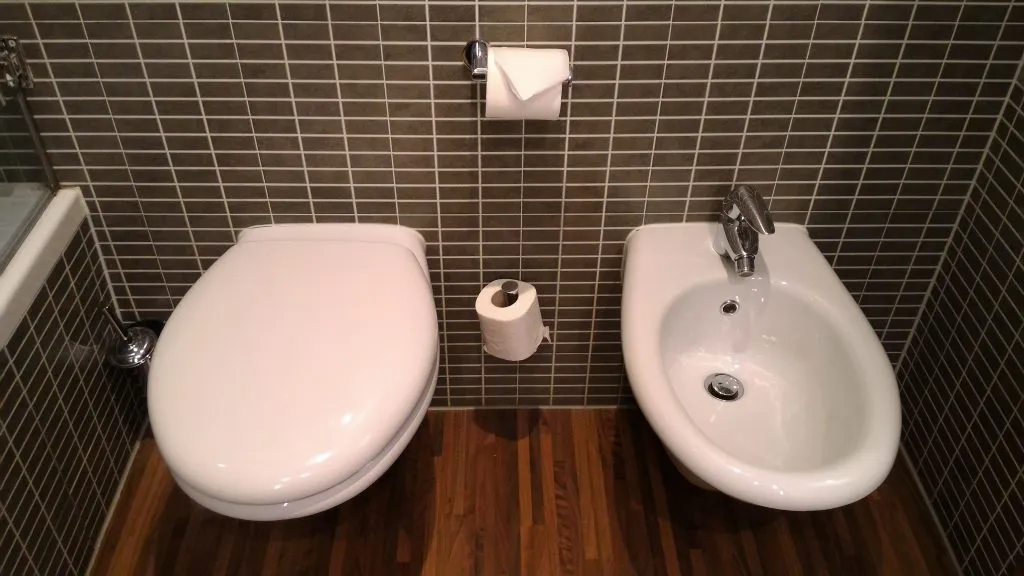
Do European restrooms have diaper-changing stations?
Definitely don’t count on it.
While large public toilet banks, like in train stations, will often be equipped, it’s not a guarantee.
In small, closet-sized toilets in European restaurants, you’re very unlikely to find a way to change diapers (and there’s usually not really space to anyway).
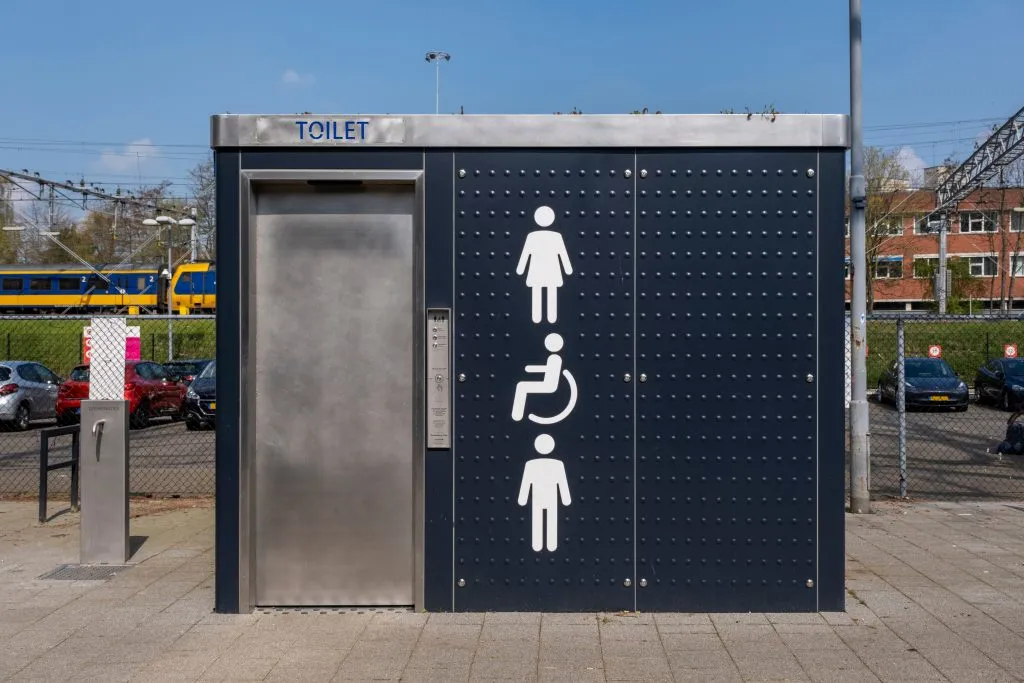
Does Europe have squat toilets?
They’re not particularly common, but yes, you can find squat toilets in Europe.
A squat toilet, or “squatty potty” is a toilet that you don’t firmly sit on, but instead literally squat over the bowl, which is embedded in the floor.
They sound more intimidating than they are, honestly, and are pretty rare in Europe (they’re the norm, however, in many places around the world).
While squat toilets in Europe can be found more commonly the further east you go (especially in the Balkans), they’re not the default anywhere on the continent.
The first squat toilet I ever personally experienced was at the train station in Lucca, Italy.
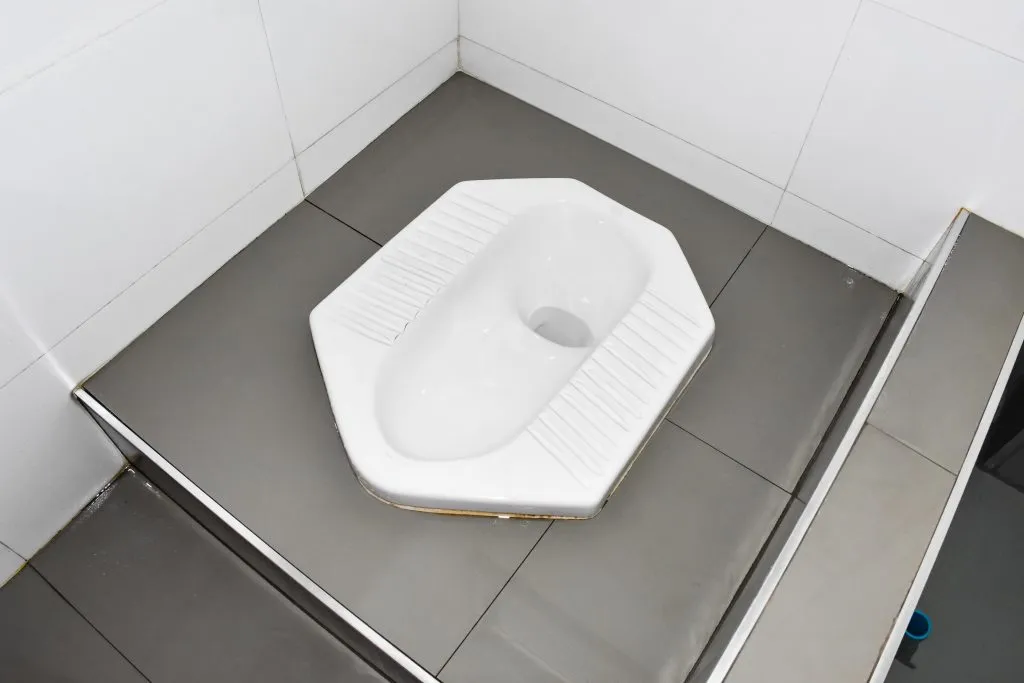
Are there public toilets in Europe?
Yes, in some places!
Whether or not there are public toilets on the street varies wildly across the continent, but you do see them in some countries, like France and Germany.
These can either be free (in which case the cleanliness is highly questionable), or paid (still questionable, but a safer bet).
If you’re visiting a standalone public toilet in Europe that isn’t in a place of business, the odds of there being toilet paper are not nearly as high as in most other cases.
We recommend coming prepared with a small pack of tissues and plenty of hand sanitizer if you think you might like to take advantage of public toilets in Europe while sightseeing!
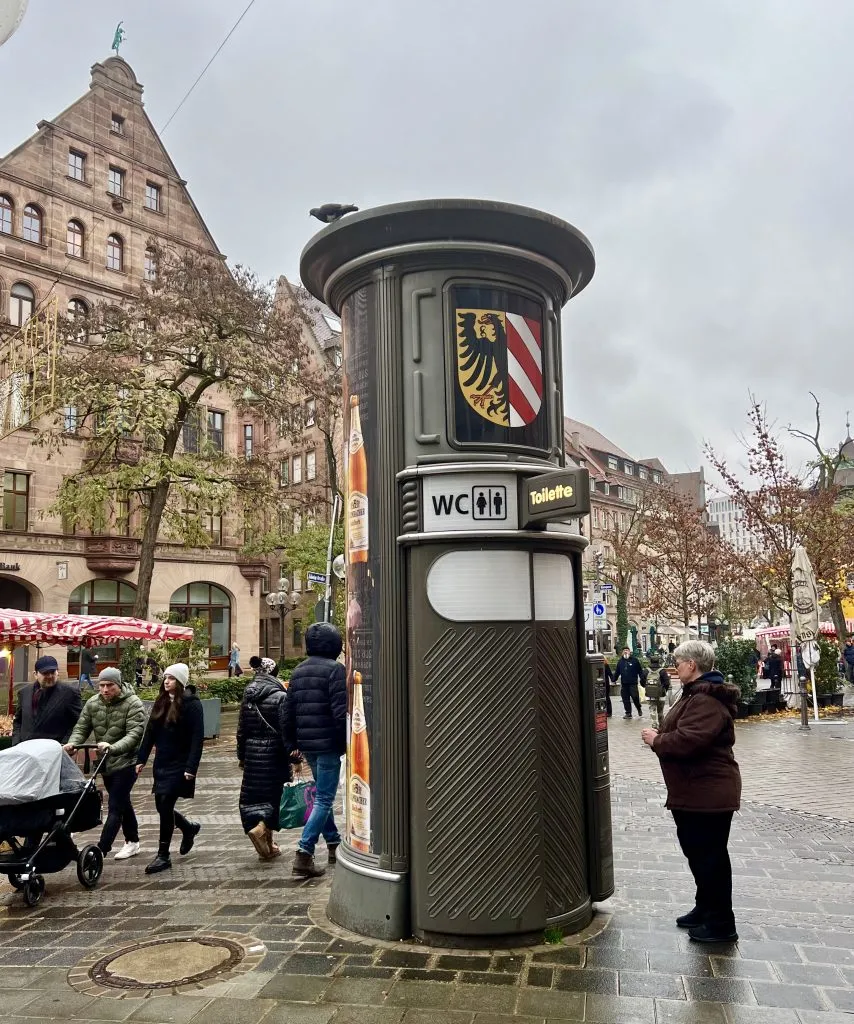
Can you flush toilet paper in Europe?
Usually, absolutely!
There are exceptions, usually in older buildings with sensitive plumbing, but it’s not necessarily common to see.
If that’s the case, you’ll virtually always see a sign next to the toilet stating to throw the paper into the trash can.
Do European restrooms have stalls that reach the floor?
It’s practically a meme at this point that public restrooms in the US have flimsy stalls with gaps at the ceiling, floor, and around the edges, while public toilets in Europe boast fully enclosed stalls.
While there is some variance in both places, in general, yes, it’s more or less true.
European toilets tend to offer a more firmly sequestered space for each stall, with far fewer gaps.
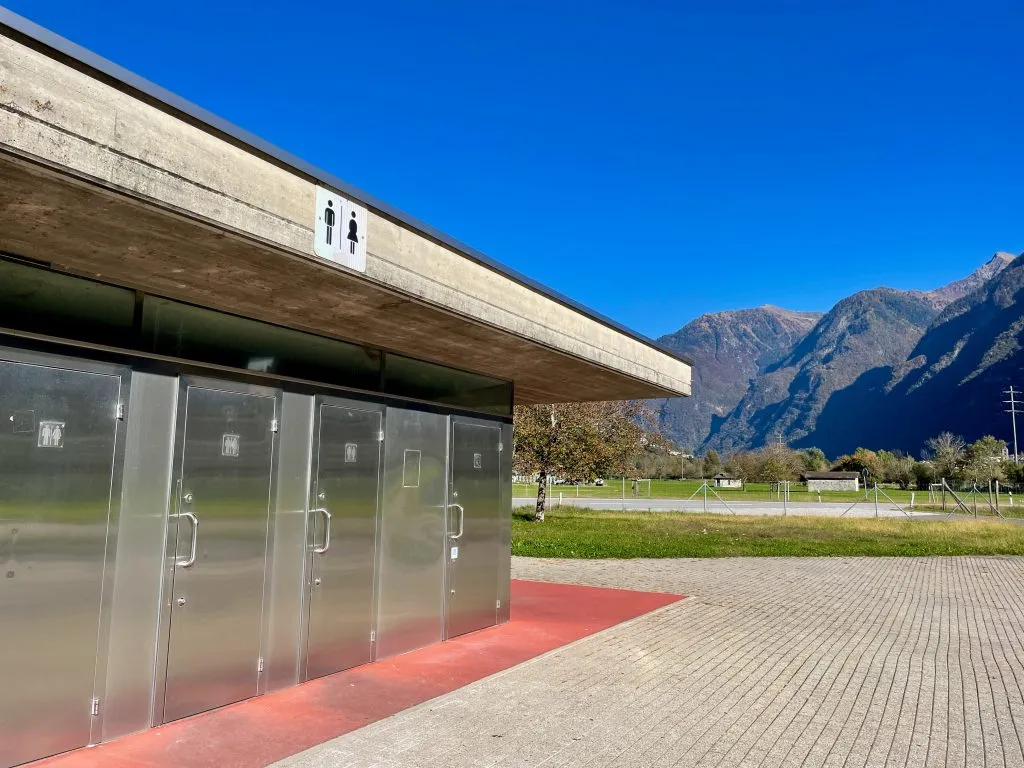
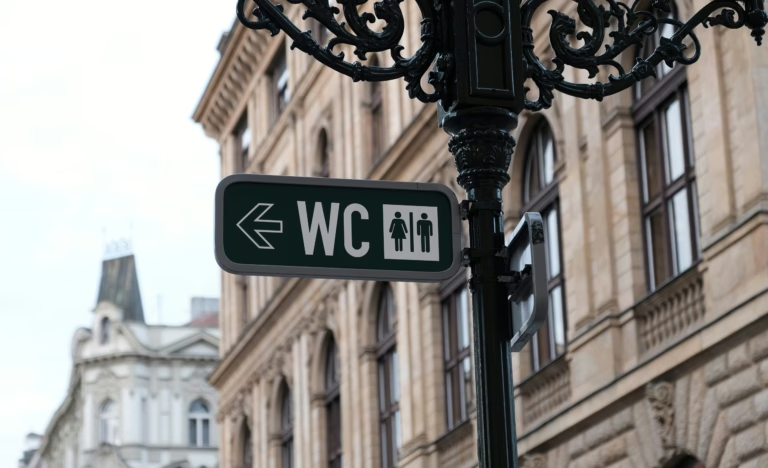
About Kate Storm